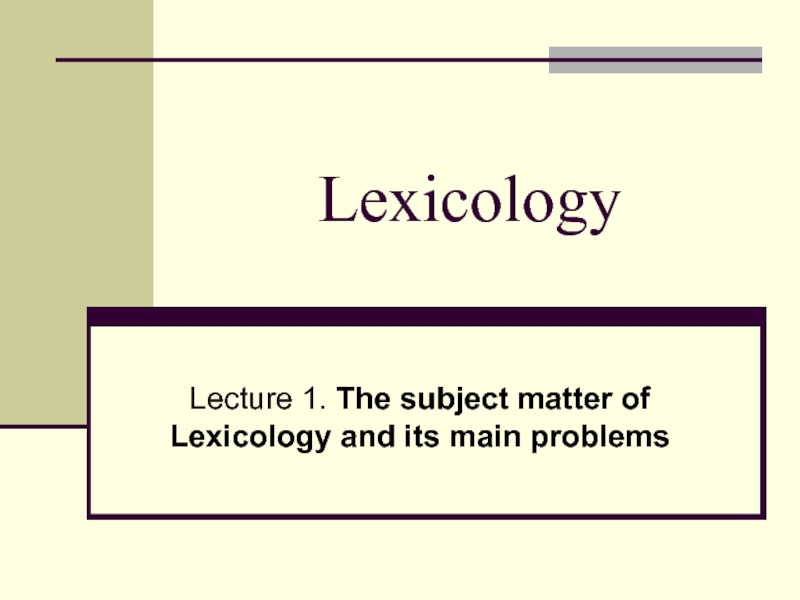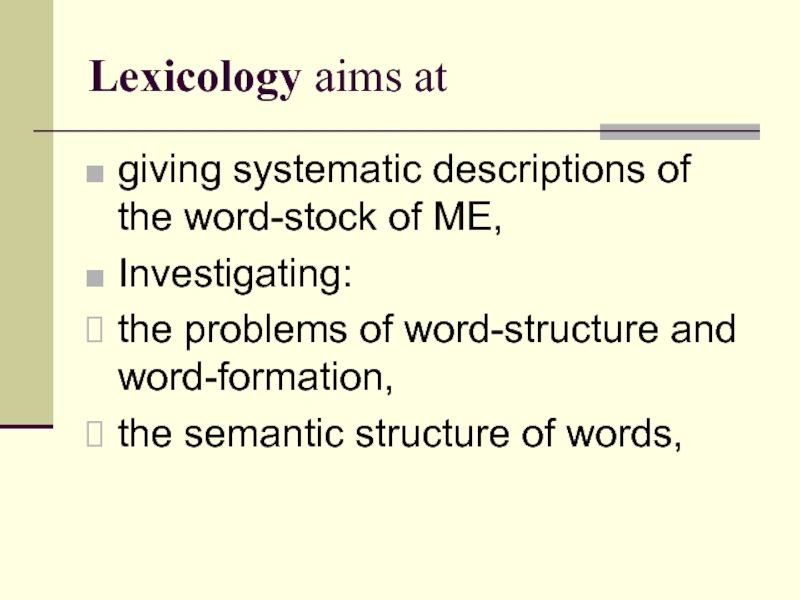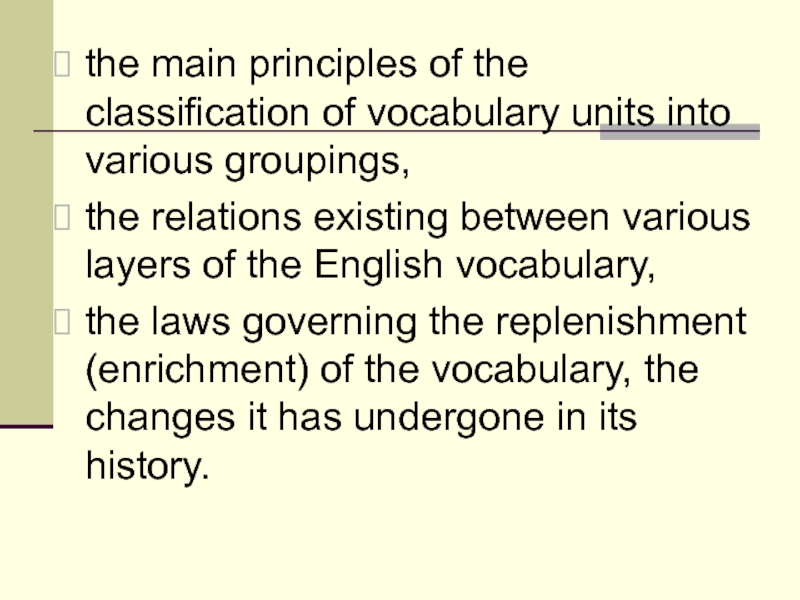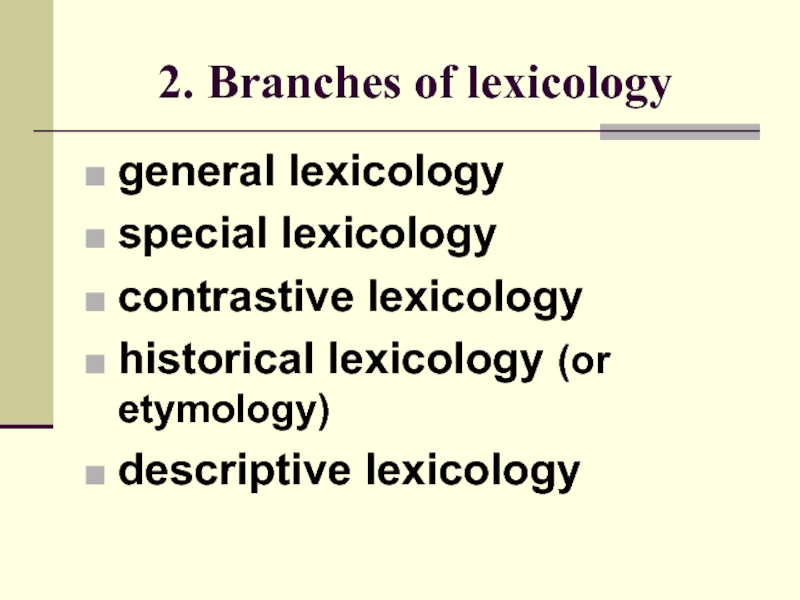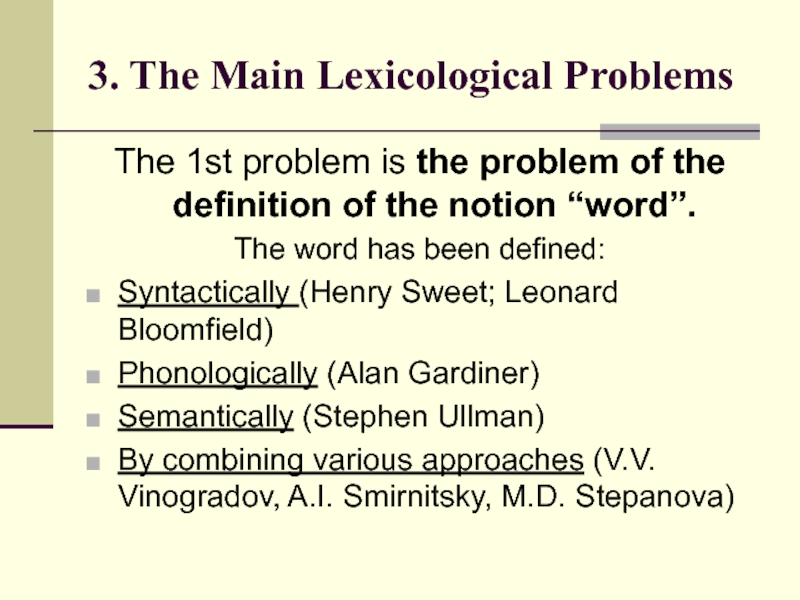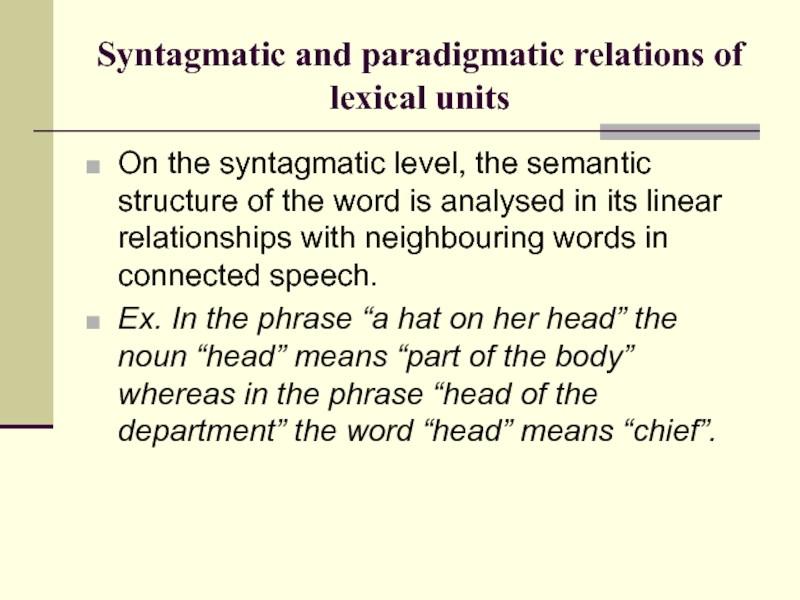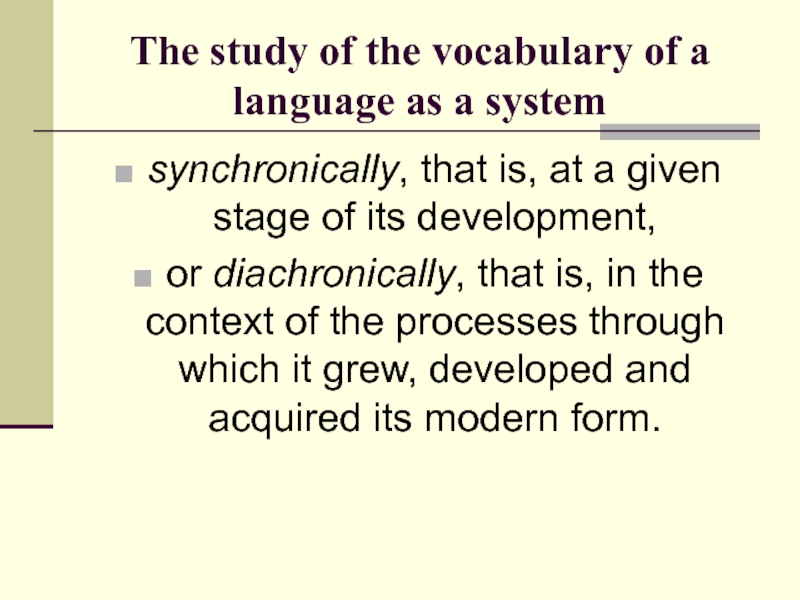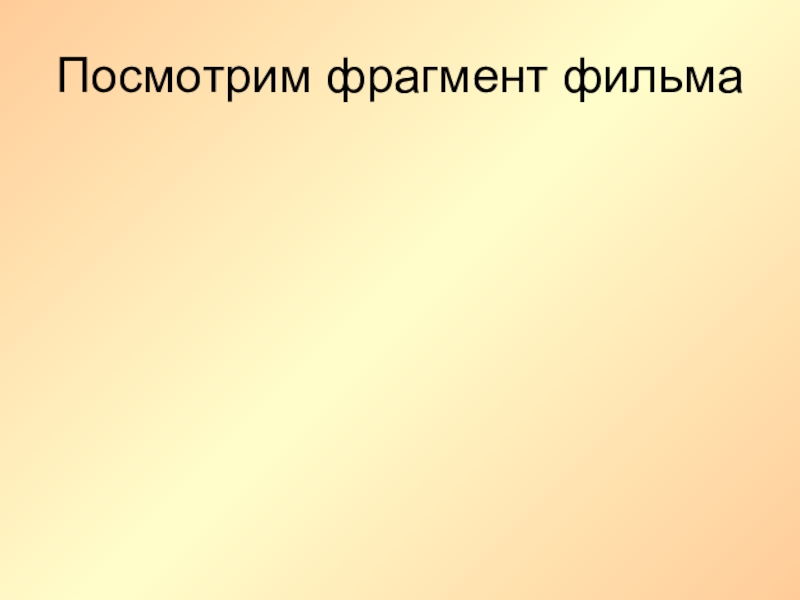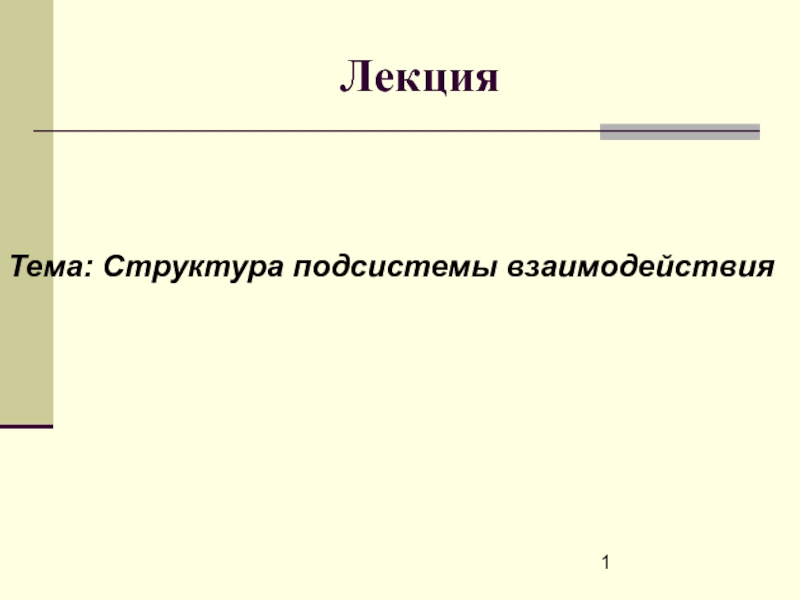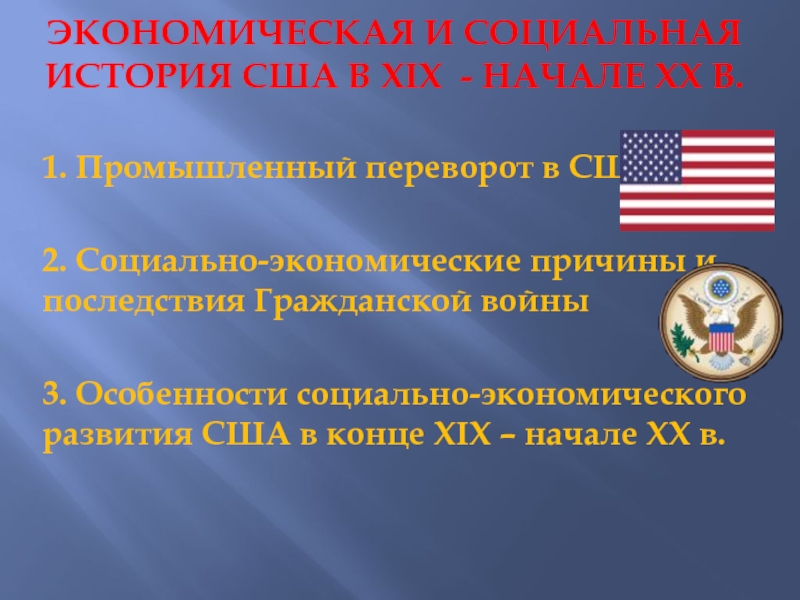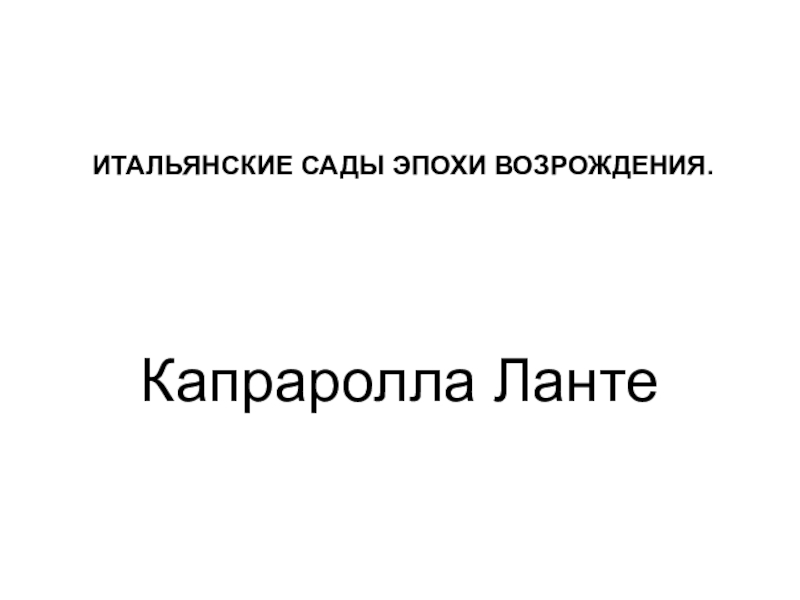Разделы презентаций
- Разное
- Английский язык
- Астрономия
- Алгебра
- Биология
- География
- Геометрия
- Детские презентации
- Информатика
- История
- Литература
- Математика
- Медицина
- Менеджмент
- Музыка
- МХК
- Немецкий язык
- ОБЖ
- Обществознание
- Окружающий мир
- Педагогика
- Русский язык
- Технология
- Физика
- Философия
- Химия
- Шаблоны, картинки для презентаций
- Экология
- Экономика
- Юриспруденция
Lexicology
Содержание
- 1. Lexicology
- 2. Outline of the lecture:1. Lexicology as a linguistic science.2. Branches of lexicology3. The Main Lexicological Problems
- 3. Lexicology aims atgiving systematic descriptions of the
- 4. the main principles of the classification of
- 5. 2. Branches of lexicology general lexicology
- 6. 3. The Main Lexicological ProblemsThe 1st problem
- 7. The word isa speech unit used for
- 8. The internal and external structure of a
- 9. Syntagmatic and paradigmatic relations of lexical unitsOn
- 10. On the paradigmatic level,the word is studied
- 11. The study of the vocabulary of a
- 12. ParadigmThe lexical meaning (the same throughout the
- 13. Скачать презентанцию
Outline of the lecture:1. Lexicology as a linguistic science.2. Branches of lexicology3. The Main Lexicological Problems
Слайды и текст этой презентации
Слайд 2Outline of the lecture:
1. Lexicology as a linguistic science.
2. Branches
of lexicology
3. The Main Lexicological Problems
Слайд 3Lexicology aims at
giving systematic descriptions of the word-stock of ME,
Investigating:
the problems of word-structure and word-formation,
the semantic structure of
words, Слайд 4the main principles of the classification of vocabulary units into
various groupings,
the relations existing between various layers of the
English vocabulary,the laws governing the replenishment (enrichment) of the vocabulary, the changes it has undergone in its history.
Слайд 5
2. Branches of lexicology
general lexicology
special lexicology
contrastive lexicology
historical
lexicology (or etymology)
descriptive lexicology
Слайд 63. The Main Lexicological Problems
The 1st problem is the problem
of the definition of the notion “word”.
The word has been
defined:Syntactically (Henry Sweet; Leonard Bloomfield)
Phonologically (Alan Gardiner)
Semantically (Stephen Ullman)
By combining various approaches (V.V. Vinogradov, A.I. Smirnitsky, M.D. Stepanova)
Слайд 7The word is
a speech unit used for the purposes of
a human communication, materially representing a group of sound possessing
a meaning susceptible to grammatical employment and characterised by formal and semantic unity.Слайд 8The internal and external structure of a word
The external structure
of the word (morphological)
For example, post-impressionists: the prefixes post-, im-,
the root press, the noun-forming suffixes -ion, -ist, and the grammatical suffix of plurality -s. The internal structure of the word (semantic)
This is certainly the word's main aspect.
Слайд 9Syntagmatic and paradigmatic relations of lexical units
On the syntagmatic level,
the semantic structure of the word is analysed in its
linear relationships with neighbouring words in connected speech.Ex. In the phrase “a hat on her head” the noun “head” means “part of the body” whereas in the phrase “head of the department” the word “head” means “chief”.
Слайд 10On the paradigmatic level,
the word is studied in its relationships
with other words in the vocabulary system.
A word may
be studied in comparison with other words of similar meaning (e. g. work, n. — labour, n.; to refuse, v. — to reject v. — to decline, v.),
of opposite meaning (e. g. busy, adj. — idle, adj.; to accept, v, — to reject, v.),
of different stylistic characteristics (e. g. man, n. — chap, n. — bloke, n. — guy, n.).
Слайд 11The study of the vocabulary of a language as a
system
synchronically, that is, at a given stage of its
development, or diachronically, that is, in the context of the processes through which it grew, developed and acquired its modern form.
Слайд 12Paradigm
The lexical meaning (the same throughout the paradigm)
The grammatical meaning
(varies from one form to another)
Ex. His brother is a
well-known singer.I wonder who has taken my umbrella.
